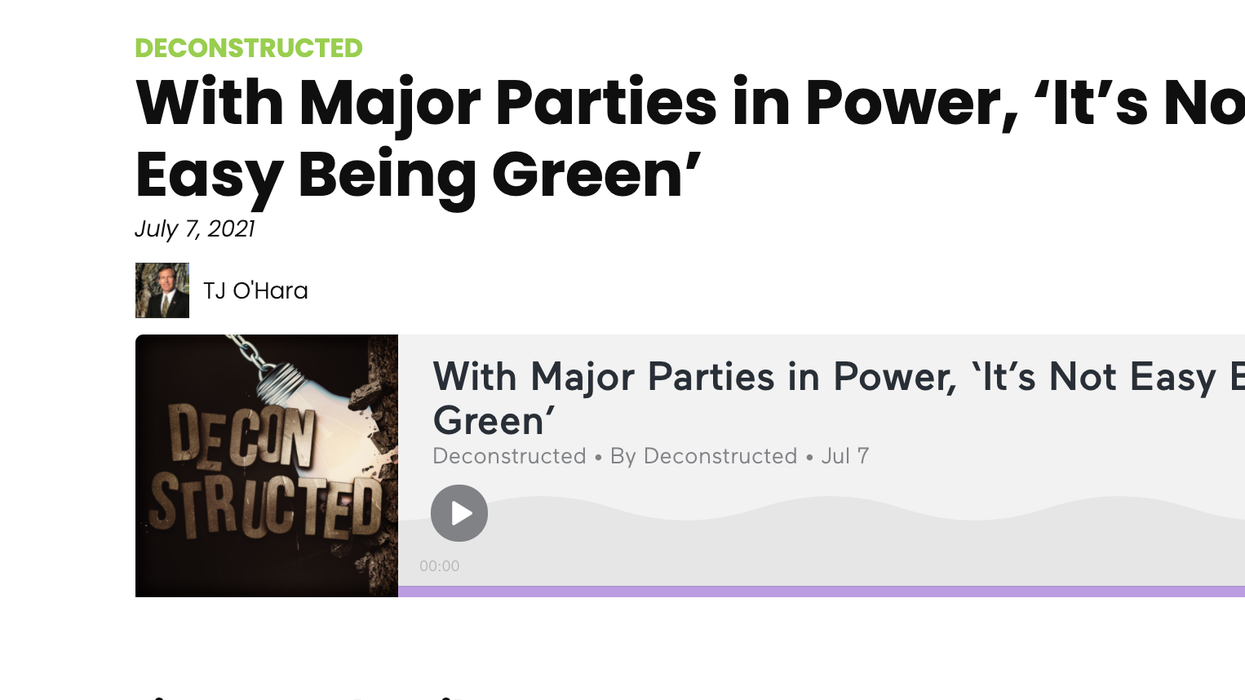Michael O'Neil, U.S. Communications Manager for the Green Party, joins T.J. O'Hara, host of the Deconstructed podcast from IVN, to discuss the Green Party's past, present, and future. Michael O'Neil has over 15 years of political communications experience and has served the Green Party in a variety of capacities for the past 12 years, including roles as Assistant to the Campaign Manager for Dr. Jill Stein's 2016 presidential campaign and co-manager of that campaign's Brooklyn, NY Office.
Podcast: With Major Parties in Power, ‘It’s Not Easy Being Green’




















Trump & Hegseth gave Mark Kelly a huge 2028 gift